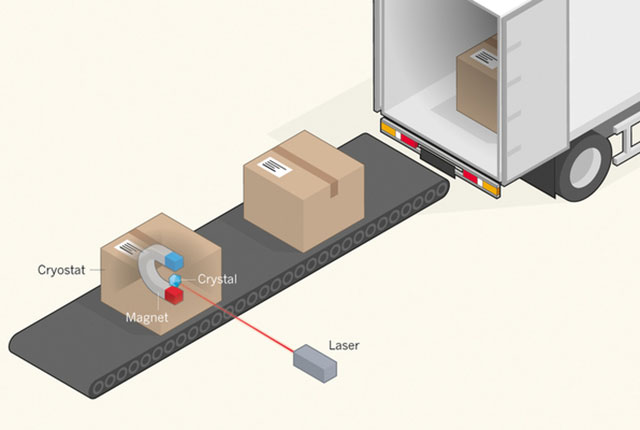A quantum memory is a necessary component in any quantum network, able to store quantum information that has been encoded onto light and then recall it on-demand at a later time. The memories are required to buffer the information, and synchronise operations in different parts of the network.

Figure 1: Quantum postal service. Adapted by permission from Macmillan Publishers Ltd: Nature 517, 153-154, copyright 2015
The storage time of any quantum memory is limited by the coherence time of the material it is built in. This determines the length of time before the quantum information is lost through interactions with the local environment. Rare earth ion crystals possess exceptional coherence properties, which is why they have been widely used in quantum information experiments. The main mechanism that limits the coherence time in these materials is interactions between the rare earth ions and other ions present in the crystal.
We have extensively investigated these interactions and how to reduce them, and have recently demonstrated a quantum coherence time of over six hours, the longest in any solid-state system by over two orders of magnitude. By optimising our method of minimising the interactions, we aim to increase this to over a day.
Such long coherence times open up new possibilities for the distribution of quantum information. Rather than requiring a complex optical network, as is usually assumed, a 'quantum hard drive' with long enough storage times would allow one to ship quantum information anywhere in the world via a quantum postal service. An alternative possibility is quantum communication via satellites, which will most likely require quantum memories capable of storing information for times comparable to the orbit time of the satellite. We are currently the only group in the world to have demonstrated sufficiently long coherence times, opening up exciting new prospects.